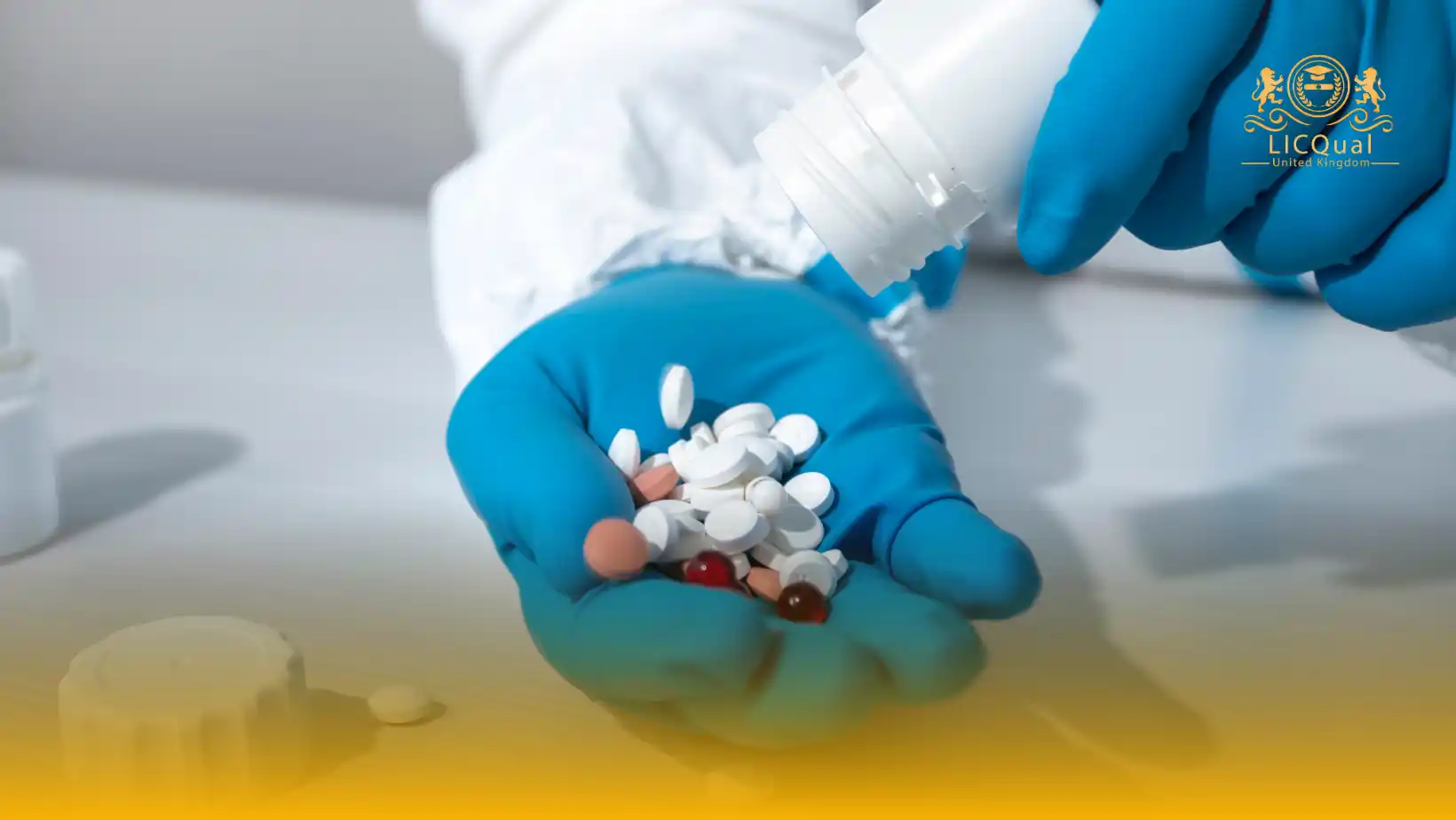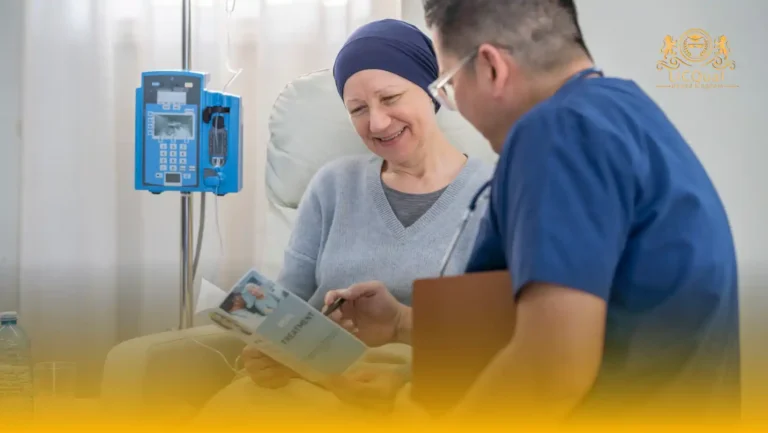The LICQual Level 3 Diploma in Tropical Medicine (Dip TM) is a specialised qualification designed for healthcare professionals who wish to deepen their understanding of tropical diseases and improve their expertise in managing health conditions prevalent in tropical and subtropical regions. This programme is intended for experienced practitioners, not fresh candidates, and is ideal for those seeking to enhance their career prospects, broaden their knowledge base, and advance their Continuing Professional Development (CPD).
Learners undertaking this diploma will gain comprehensive insights into the diagnosis, treatment, and prevention of tropical diseases, including malaria, dengue, leishmaniasis, and other parasitic, bacterial, and viral infections. The curriculum combines theoretical knowledge with practical approaches, equipping learners with the skills needed to assess risk, implement effective interventions, and contribute to improved public health outcomes in tropical environments.
Centres delivering this qualification must ensure that training is provided by competent and qualified staff with expertise in tropical medicine and global health. Additionally, centres must provide access to relevant learning resources, laboratory facilities, clinical case studies, and digital platforms to create a high-quality learning environment that supports learner success.
By completing the LICQual Level 3 Diploma in Tropical Medicine, learners will not only strengthen their professional knowledge but also gain the practical competencies necessary to work effectively in healthcare settings exposed to tropical diseases. This qualification is an excellent choice for medical practitioners, nurses, public health professionals, and researchers who aim to make a meaningful impact in tropical medicine and global health initiatives.
Course Overview
Qualification Title
LICQual Level 3 Diploma in Tropical Medicine (Dip TM)
Total Units
6
Total Credits
60
GLH
240
Qualification #
LICQ2200886
Qualification Specification
To enroll in the LICQual Level 3 Diploma in Tropical Medicine (Dip TM) , applicants must meet the following criteria:
|
Qualification# |
Unit Title |
Credits |
GLH |
|---|---|---|---|
|
LICQ2200886-1 |
Foundations of Tropical Medicine |
10 |
40 |
|
LICQ2200886-2 |
Parasitic Diseases |
10 |
40 |
|
LICQ2200886-3 |
Bacterial and Viral Tropical Diseases |
10 |
40 |
|
LICQ2200886-4 |
Clinical Assessment and Diagnostics |
10 |
40 |
|
LICQ2200886-5 |
Treatment, Management, and Preventive Strategies |
10 |
40 |
|
LICQ2200886-6 |
Research, Ethics, and Professional Practice |
10 |
40 |
By the end of this course, learners will be able to:
Unit 1: Foundations of Tropical Medicine
- Explain the geography, climate, and epidemiology of tropical and subtropical regions.
- Demonstrate understanding of the principles of infectious disease pathology.
- Identify key factors contributing to the spread of tropical diseases.
- Analyse the global and public health impact of tropical diseases.
Unit 2: Parasitic Diseases
- Describe the life cycles, transmission methods, and clinical impact of major parasitic diseases such as malaria, leishmaniasis, and schistosomiasis.
- Apply laboratory and diagnostic techniques to detect parasitic infections.
- Evaluate treatment protocols and preventive strategies for parasitic diseases.
- Assess case studies to develop appropriate patient management plans.
Unit 3: Bacterial and Viral Tropical Diseases
- Identify common bacterial and viral tropical diseases, including dengue, cholera, typhoid, and yellow fever.
- Explain infection control measures and the role of immunisation in prevention.
- Apply diagnostic and treatment methods for bacterial and viral infections.
- Analyse outbreak scenarios and develop appropriate public health responses.
Unit 4: Clinical Assessment and Diagnostics
- Conduct effective patient assessments in tropical and resource-limited settings.
- Utilise laboratory, point-of-care, and field diagnostic methods.
- Interpret clinical and laboratory findings accurately to support treatment decisions.
- Apply case-based learning to assess and manage tropical disease cases.
Unit 5: Treatment, Management, and Preventive Strategies
- Explain pharmacological and supportive treatment options for tropical diseases.
- Develop public health strategies to prevent and control tropical disease outbreaks.
- Integrate travel medicine and global health considerations into patient care.
- Evaluate multidisciplinary approaches to disease management in tropical settings.
Unit 6: Research, Ethics, and Professional Practice
- Apply evidence-based practices in tropical medicine and patient care.
- Demonstrate understanding of ethical and professional standards in global health.
- Analyse current research and clinical guidelines to inform practice.
- Commit to Continuing Professional Development (CPD) to maintain expertise in tropical medicine.
The LICQual Level 3 Diploma in Tropical Medicine (Dip TM) is designed for healthcare professionals, students, and individuals who want to specialize in the prevention, diagnosis, and management of tropical and infectious diseases. This accredited tropical medicine diploma is ideal for those seeking CPD accreditation, career growth, and practical skills to address global health challenges such as malaria, dengue, tuberculosis, and parasitic infections. Whether you are already working in healthcare or planning to enter the field, this Level 3 tropical medicine qualification equips you with the expertise to make a meaningful impact in hospitals, NGOs, and international health organizations.
1. Doctors and Medical Practitioners
- Strengthen expertise in diagnosing and treating tropical diseases
- Gain advanced skills in managing malaria, dengue, and parasitic infections
- Enhance qualifications with an accredited tropical medicine diploma
- Apply evidence-based practices in hospitals and clinics worldwide
- Earn CPD points to support ongoing professional development
2. Nurses and Allied Healthcare Professionals
- Build confidence in patient care for tropical and infectious diseases
- Learn strategies for outbreak management and infection prevention
- Strengthen qualifications with a CPD accredited tropical medicine course
- Improve ability to support doctors in clinical and community settings
- Gain practical skills for both hospital and field-based healthcare
3. Medical and Healthcare Students
- Develop a strong foundation in tropical medicine and global health
- Gain a competitive edge for future healthcare and research careers
- Access flexible online learning while continuing academic studies
- Learn practical approaches to tropical disease prevention and treatment
- Earn a recognized Level 3 tropical medicine qualification early in your career
4. Public Health and Epidemiology Professionals
- Strengthen expertise in disease surveillance and outbreak control
- Learn strategies for integrating tropical medicine into public health programs
- Contribute to national and global health initiatives
- Build qualifications for roles in NGOs, WHO, and government agencies
- Apply tropical medicine principles to population-level health challenges
5. NGO and Humanitarian Workers
- Prepare for healthcare delivery in underserved or crisis regions
- Gain practical skills for managing tropical diseases in emergencies
- Strengthen qualifications for roles in international aid organizations
- Learn to implement tropical medicine practices in resource-limited settings
- Contribute to global health and humanitarian resilience initiatives
6. Researchers and Global Health Scholars
- Enhance expertise in tropical disease research and epidemiology
- Learn advanced methods in parasitology and vector-borne disease studies
- Strengthen qualifications for academic and research careers
- Gain skills to contribute to global health innovation and discovery
- Build a pathway toward higher-level specialization in tropical medicine
7. Career Changers and Lifelong Learners
- Explore opportunities in healthcare, tropical medicine, and global health
- Gain an affordable and accessible qualification in tropical medicine
- Build transferable skills for roles in education, research, or NGOs
- Learn at your own pace with flexible online study options
- Strengthen your CV with a recognized diploma in tropical medicine
To deliver the LICQual Level 3 Diploma in Tropical Medicine (Dip TM) effectively, centres must meet the following requirements to ensure high-quality training, learner success, and compliance with international standards:
- Qualified and Competent Trainers
- Centres must employ trainers with relevant qualifications and experience in tropical medicine, infectious diseases, and global health.
- Staff should demonstrate practical experience in clinical, laboratory, or public health settings related to tropical diseases.
- Learning Facilities and Resources
- Centres should provide access to modern classrooms, simulation labs, and clinical learning spaces equipped with appropriate teaching tools and materials.
- Learners must have access to digital resources, reference materials, case studies, and laboratory equipment to support practical and theoretical learning.
- Quality Assurance and Monitoring
- Centres must maintain robust quality assurance processes to ensure teaching and assessment meet LICQual’s international standards.
- Regular monitoring and evaluation of trainers, resources, and learner progress are essential.
- Support Services for Learners
- Centres should offer mentoring, academic guidance, and career support to help learners achieve professional development goals.
- Support for learners with special educational needs and disabilities (SEND) must be available.
- Technological Support
- Centres must provide access to e-learning platforms, online libraries, and digital tools to facilitate blended or remote learning.
- Health, Safety, and Ethics Compliance
- Centres must ensure compliance with health, safety, and ethical standards, particularly in laboratory or clinical learning environments.
By fulfilling these requirements, centres can deliver the LICQual Level 3 Diploma in Tropical Medicine with confidence, ensuring learners gain the knowledge, practical skills, and professional competencies required to excel in tropical and global health practice.
Assessment and Verification
All units within this qualification are subject to internal assessment by the approved centre and external verification by LICQual. The qualification follows a criterion-referenced assessment approach, ensuring that learners meet all specified learning outcomes.
To achieve a ‘Pass’ in any unit, learners must provide valid, sufficient, and authentic evidence demonstrating their attainment of all learning outcomes and compliance with the prescribed assessment criteria. The Assessor is responsible for evaluating the evidence and determining whether the learner has successfully met the required standards.
Assessors must maintain a clear and comprehensive audit trail, documenting the basis for their assessment decisions to ensure transparency, consistency, and compliance with quality assurance requirements.







